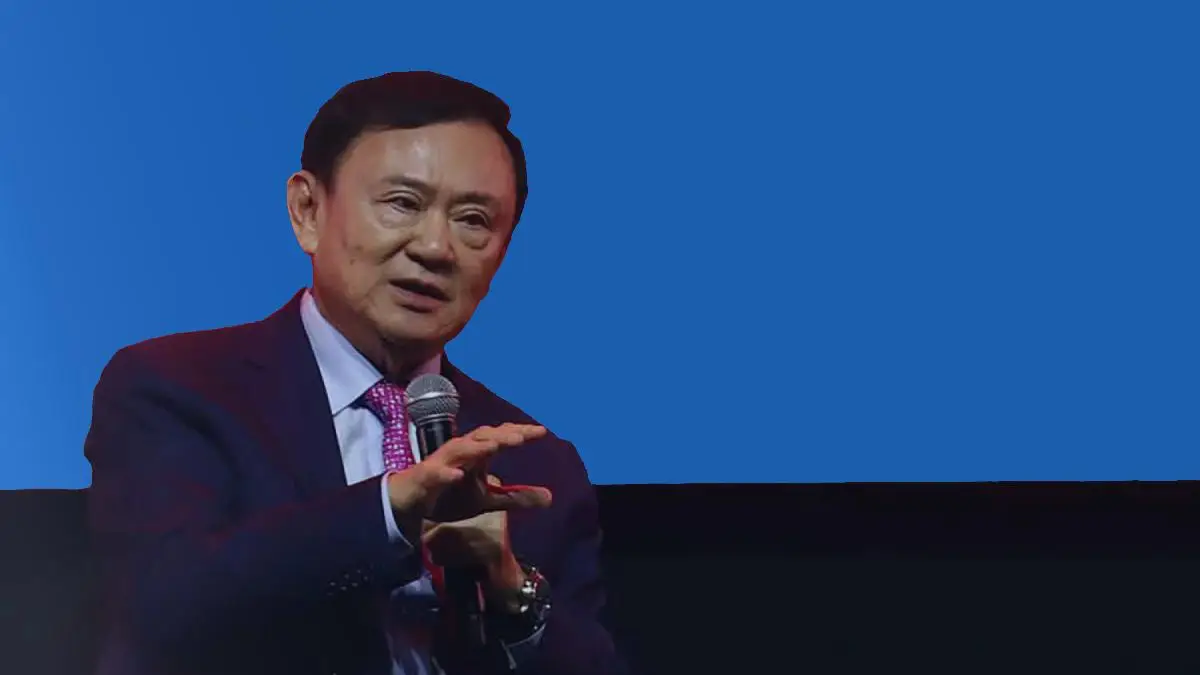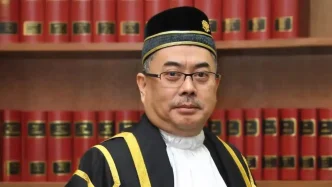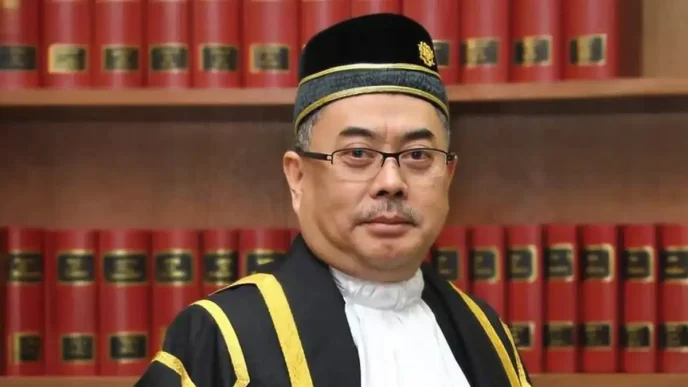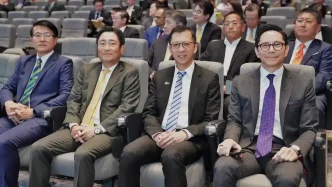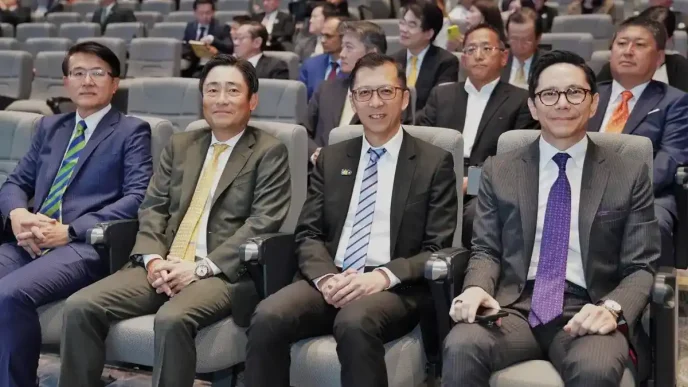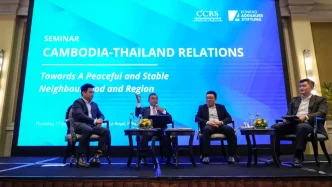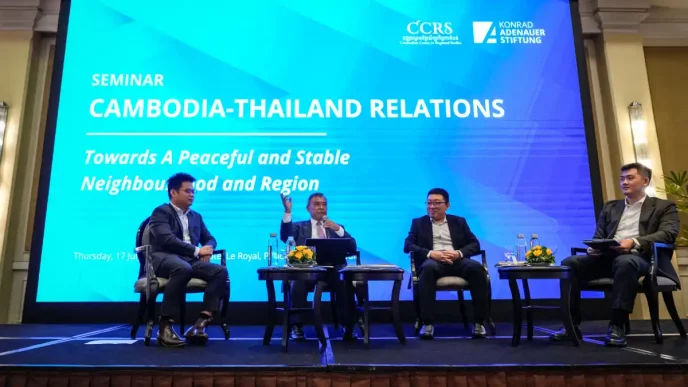Thailand’s political landscape is once again under scrutiny as former Prime Minister Thaksin Shinawatra prepares to attend a dinner with coalition parties on Tuesday, an event that has sparked debate about his influence over the ruling Pheu Thai Party and the current government. Wisut Chainaroon, the chief government whip and a list MP for Pheu Thai, confirmed Thaksin’s attendance, dismissing concerns that his presence signals an attempt to exert control over the party or government policies.
A Rare Gathering for Coalition Unity
The dinner, described as a rare opportunity for coalition MPs to dine together, comes at a critical juncture for the government, which has been in power for two years. According to Mr. Wisut, this will be only the second such gathering since the administration took office. With some parties having recently left the coalition, the event is seen as a necessary step to reinforce unity and foster mutual understanding ahead of upcoming parliamentary sessions.
Deputy Prime Minister and Interior Minister Phumtham Wechayachai, currently acting as prime minister, emphasized the importance of such gatherings in building relationships among coalition members. He described the dinner as part of a regular process that allows MPs to interact, exchange ideas, and strengthen ties. Typically closed to outsiders, Mr. Phumtham noted that discussions are ongoing about whether the media will be granted access to cover the event.
Thaksin’s Presence: Influence or Insight?
Thaksin Shinawatra, a polarizing figure in Thai politics, has long been associated with the Pheu Thai Party, which he founded under a different name over two decades ago. His return to Thailand in 2023 after years in self-imposed exile, followed by a controversial parole release, has kept him in the spotlight. Critics have often accused him of wielding behind-the-scenes influence over the party and government, a charge that has resurfaced with news of his attendance at the coalition dinner.
Mr. Wisut was quick to address these concerns, arguing that sharing a meal and engaging in conversation does not equate to domination. “Domination involves issuing directives—telling a political party, its MPs, or the government what to do. If he [Thaksin] merely shares his knowledge and experience, it should be acknowledged that during his time as prime minister, the Thai people were very happy. Drawing upon his experience and advice can be beneficial.” he stated on a recent occasion, as reported by local sources.
He further highlighted the potential value of Thaksin’s participation for newer MPs, many of whom have never met or heard directly from the former leader. “For them, this will be a valuable experience” Mr. Wisut added, framing the event as an opportunity for mentorship rather than control.
Thaksin Shinawatra served as Thailand’s prime minister from 2001 to 2006, a period marked by significant economic growth and populist policies that endeared him to rural and working-class voters, particularly in the northern and northeastern regions. However, his tenure was also marred by allegations of corruption and abuse of power, culminating in a military coup in 2006 that ousted him from office. After years abroad to avoid prosecution, his return and subsequent legal proceedings have been a focal point of political discourse in Thailand.
While Thaksin holds no official position in the current government or the Pheu Thai Party, his familial ties—his daughter, Paetongtarn Shinawatra, recently became Thailand’s youngest prime minister—fuel speculation about his influence. The Pheu Thai Party has consistently denied that Thaksin plays a decision-making role, emphasizing that his involvement is limited to offering guidance based on his extensive political experience.
While Thaksin’s return in 2023 initially sparked controversy—including protests in early 2024 over his parole and perceived preferential treatment—the political landscape has since shifted. Critics remain vocal, but some analysts argue that his influence has waned. “Mr. Thaksin’s hand in politics is weaker than it used to be,” opined political science professor Thitinan Pongsudhirak in March 2024, suggesting that generational change and new power centers within the coalition are redefining political gravity.
Analysts, however, remain divided on the implications of his presence at events like the coalition dinner. Some view it as a symbolic gesture, reinforcing his status as a political patriarch whose insights are still sought after by party members. Others caution that even informal appearances can be perceived as an attempt to steer the government’s direction, especially at a time when the coalition faces challenges in maintaining cohesion amid shifting political alliances.
Coalition Politics and Strategic Messaging
The timing of the dinner is significant, as Thailand’s political environment remains fluid. The departure of certain coalition partners has raised questions about the government’s stability, particularly as it navigates contentious issues such as economic recovery and constitutional reform. Parliamentary sessions in the coming months are expected to test the coalition’s unity, with debates over policy priorities likely to intensify.
Strengthening interpersonal relationships among coalition MPs could prove crucial in ensuring a unified front. Events like the upcoming dinner provide a platform for dialogue outside the formal constraints of parliamentary proceedings, allowing members to address grievances, align strategies, and build trust. For a coalition government composed of diverse parties with varying agendas, such interactions are often as important as policy agreements.
Mr. Phumtham’s comments suggest that the government is keen to project an image of collaboration and openness within its ranks. By framing the dinner as a routine gathering, the administration appears to be downplaying any notion of internal discord or external interference, including from figures like Thaksin.
The potential media coverage of the event adds another layer of complexity. While Mr. Phumtham indicated that access for journalists is still under discussion, the presence of cameras and reporters could amplify public scrutiny of Thaksin’s role. Images or footage of him mingling with current leaders might reinforce narratives of influence, even if his participation is purely social.
Public opinion on Thaksin remains deeply polarized. Supporters credit him with transformative policies that uplifted marginalized communities, while detractors argue that his leadership style undermined democratic institutions and prioritized personal gain. Any perceived involvement in current politics is likely to reignite these debates, shaping voter sentiment ahead of future elections.
Broader Implications for Thai Politics
Thaksin’s attendance at the coalition dinner is emblematic of broader trends in Thai politics, where personal networks and historical legacies continue to play a significant role. The interplay between formal political structures and informal influence remains a defining feature of the country’s governance, often complicating efforts to establish transparent and accountable systems.
The Pheu Thai Party, as the leading force in the coalition, faces the dual challenge of leveraging Thaksin’s enduring popularity among its base while distancing itself from accusations of being a proxy for his interests. Balancing these dynamics will be critical as the government seeks to address pressing national issues, from economic inequality to regional security concerns.
Moreover, the event underscores the evolving nature of coalition politics in Thailand. With alliances frequently shifting, maintaining unity requires not only policy alignment but also personal rapport among leaders. Whether the dinner succeeds in fostering such cohesion remains to be seen, but it is clear that every interaction—especially those involving figures like Thaksin—will be closely watched.
As Thailand prepares for the coalition dinner on Tuesday, the event serves as a microcosm of the country’s intricate political landscape. Thaksin Shinawatra’s participation, while framed as a benign sharing of experience, inevitably raises questions about the boundaries between past and present leadership. For the Pheu Thai Party and the broader coalition, the challenge lies in harnessing historical insights without being overshadowed by historical controversies.
With parliamentary sessions on the horizon, the government’s ability to present a united front will be tested. Whether this gathering marks a step toward greater cohesion or fuels further speculation about behind-the-scenes influence, its impact on public perception and political strategy will likely resonate beyond the dining table.


